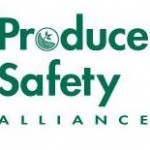Event Details
Date
January 31, 2017
Time
8:30am -4:30pm
Location
Beekmantown Town Hall
571 Spellman Road
Beekmantown, NY 12901
Cost
$100.00 Registrant Recieving PSA Manual and Certification
(additional attendee $100.00 ea.)
$25.00 Course Only Registrant- No Manual or Certification
(additional attendee $25.00 ea.)
Participants are encouraged to register at the $100 certifiaction level
Host
Cornell Vegetable ProgramEVENT HAS PASSED
Produce Safety Alliance Grower Training Course
January 31, 2017
Who Should Attend
Fruit and vegetable growers and others interested in learning about produce safety, the Food Safety Modernization Act (FSMA) Produce Safety Rule, Good Agricultural Practices (GAPs), and co-management of natural resources and food safety. The PSA Grower Training Course is one way to satisfy the FSMA Produce Safety Rule requirement outlined in § 112.22(c) that requires ‘At least one supervisor or responsible party for your farm must have successfully completed food safety training at least equivalent to that received under standardized curriculum recognized as adequate by the Food and Drug Administration.'
What to Expect at the PSA Grower Training Course
The trainers will spend approximately seven hours of instruction time covering content contained in these seven modules:
1. Introduction to Produce Safety
2. Worker Health, Hygiene, and Training
3. Soil Amendments
4. Wildlife, Domesticated Animals, and Land Use
5. Agricultural Water (Part I: Production Water; Part II: Postharvest Water)
6. Postharvest Handling and Sanitation
7. How to Develop a Farm Food Safety Plan
In addition to learning about produce safety best practices, key parts of the FSMA Produce Safety Rule requirements are outlined within each module. There will be time for questions and discussion, so participants should come prepared to share their experiences and produce safety questions.
Benefits of Attending the Course
The course will provide a foundation of Good Agricultural Practices (GAPs) and co-management information, FSMA Produce Safety Rule requirements, and details on how to develop a farm food safety plan. Individuals who participate in this course are expected to gain a basic understanding of:
-Microorganisms relevant to produce safety and where they may be found on the farm
-How to identify microbial risks, practices that reduce risks, and how to begin implementing produce safety practices on the farm
-Parts of a farm food safety plan and how to begin writing one
-Requirements in the FSMA Produce Safety Rule and how to meet them.
After attending the entire course, participants will be eligible to receive a certificate from the Association of Food and Drug Officials (AFDO) that verifies they have completed the training course. To receive an AFDO certificate, a participant must be present for the entire training and submit the appropriate paperwork to their trainer at the end of the course.
***Certification***
- The certificate will still be good a few years down the road, its a one-time requirement, no additional training or re-certification required.
- The certificate may not be a requirement if the farm is exempt, but if your production changes in the future (i.e. increases in size) you may be required to have it in the future.
- We CANNOT go back later and issue the certificate to people that participated in the course. If you choose to register at the $25 course only rate and do not receive certification you will have to retake the course if you need certification in the future. Therefore, we recommend that each person take the course at the full price now.
- The certificate is attached to the person, not to the operation. Covered operations are required to have a person employed that has been through the training and has the certificate.
Additional Information
For more information about scheduled PSA Grower Training Courses, please visit the PSA website at http://producesafetyalliance.cornell.edu.
For further questions about this training, please contact:
Anna Wallis
CCE ENYCHP, Fruit Specialist
Aew232@cornell.edu, 518-419-6823
For any other questions or to reach the Produce Safety Alliance, please contact:
Michele Humiston
Produce Safety Alliance Extension Aide
mmc15@cornell.edu, 315-787-2287
Gretchen Wall, M.S.
Produce Safety Alliance Coordinator
glw53@cornell.edu, 607-255-6806
Elizabeth Bihn, Ph.D.
Produce Safety Alliance Director
eab38@cornell.edu, 315-787-2625



































